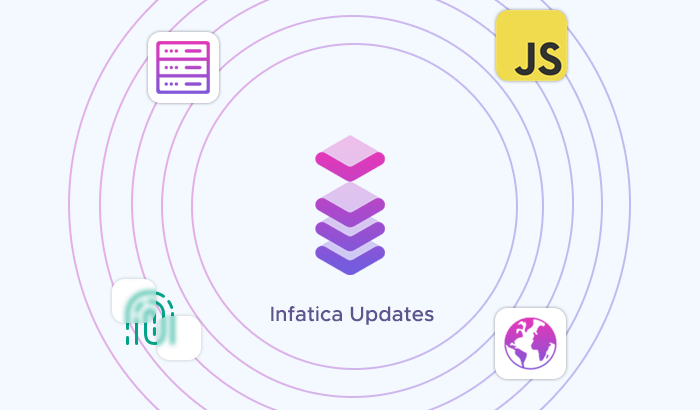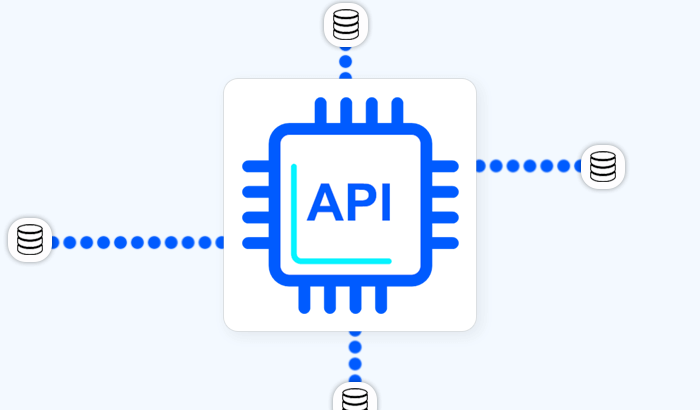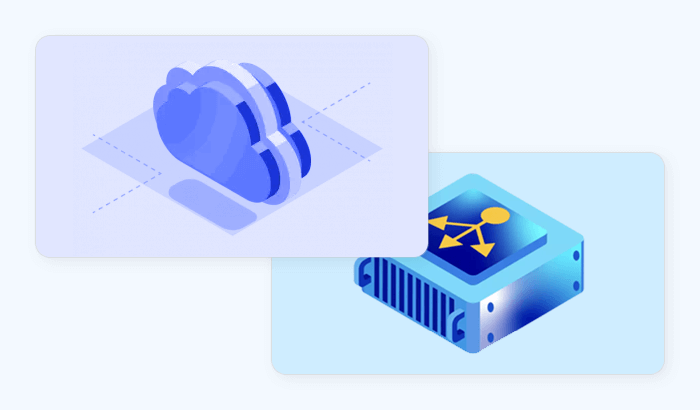- Common Types of Bots and Their Functions
- Understanding Different Types of Proxies
- Why Bots Use Proxies
- Sneakers Industry Most Targeted by Bots Operating from Static Proxies
- How Many Proxies Do You Need For a Bot?
- Selecting the Best Proxies for Your Bots
- Configuring Proxies in Your Bot
- Security Considerations When Using Proxies
- Expert Tips for Advanced Bot Proxy Usage
- How to get proxies for bots
- Frequently Asked Questions

Bots are automated programs that perform tasks on the web, such as scraping data, buying products, or creating accounts. However, not all bots have features like IP rotation, anonymity, scalability out of the box – and they often need proxies to hide their original IP address, access geo-restricted content, bypass anti-bot measures, and scale up their operations. In this article, we’re answering the “What are proxies for bots?” question: You will learn everything you need to know about proxies for bots, such as what they are, why they are important, how to choose and use them, and what are the best practices and tips for safe and efficient proxy usage.
Common Types of Bots and Their Functions
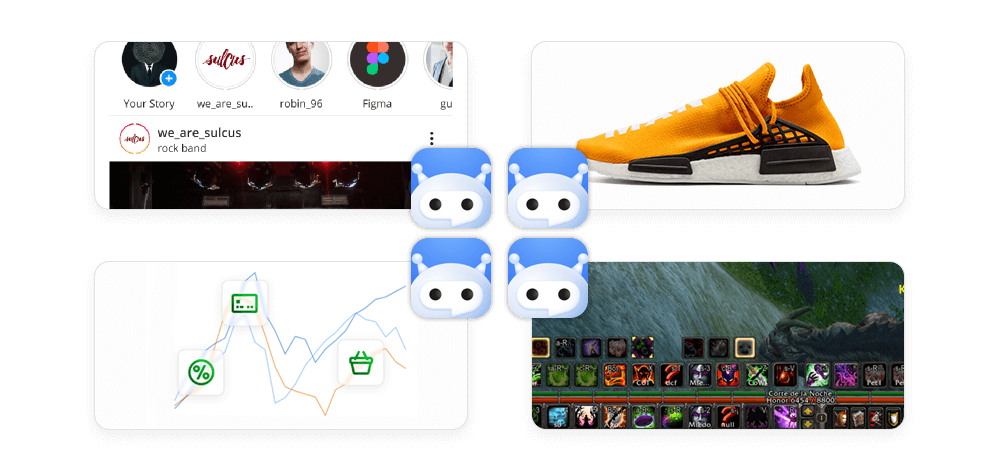
Bots come in all shapes and sizes – and almost every online activity has a corresponding web bot that can perform various tasks:
- Social media bots operate on platforms like Twitter, Facebook, or Instagram. Social bots can be used for various purposes, such as spreading information, influencing opinions, generating followers, or engaging with users.
- Sneaker bots automate the process of copping sneakers and other online products. They can bypass security measures, such as captchas, and place orders faster than human users. They are often used by resellers who want to profit from limited-edition releases.
- Web crawling and scraping bots scan and download specific content on the internet. They can help search engines to index web pages, ecommerce businesses to monitor product prices, or marketers to run sentiment analysis on social media feeds.
- Chatbots and virtual assistants simulate human conversation by responding to certain phrases with programmed responses. They can use artificial intelligence and machine learning to understand natural language and provide relevant information or services. They are often used for customer support, entertainment, or personal assistance.
- Trading bots execute trades on financial markets, such as stocks, cryptocurrencies, or forex. They can use algorithms, indicators, and signals to analyze market trends and make profitable decisions. They are often used by investors who want to automate their trading strategies.
- Malicious bots perform harmful activities on the internet, such as stealing data, spreading spam, or launching cyberattacks. They are often used by hackers or cybercriminals who want to exploit vulnerabilities or cause damage.
- Gaming bots play video games – typically for profit. They can mimic human behavior, such as moving, shooting, or chatting, or use cheats, such as aimbots or wallhacks. They are often used by gamers who want to improve their skills, level up, or earn rewards.
- IoT bots control or communicate with devices that are connected to the internet, such as smart home appliances, wearables, or sensors. They can collect data, send commands, or perform actions. They are often used by consumers or businesses who want to enhance their convenience, efficiency, or security.
Understanding Different Types of Proxies
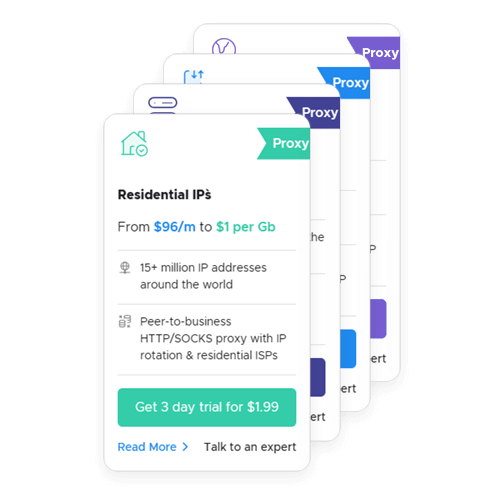
A new bot owner might get confused by a myriad of proxy types Let’s take a closer look at them:
HTTP Proxies
HTTP proxies use the HTTP protocol to communicate with websites. They are easy to use, widely available, and relatively cheap. They can help you browse the web anonymously, access geo-restricted content, or scrape data from web pages.
HTTP proxies are useful for various purposes on the web. You can use them to hide your IP address, physical location, and identity from the websites you visit. You can also use them to access content that is blocked or restricted in your region. Additionally, you can use them to scrape data from web pages without getting banned or limited.
SOCKS Proxies
SOCKS proxies use the SOCKS protocol to communicate with any type of traffic, not just HTTP. They are more versatile, secure, and fast than HTTP proxies. They can help you bypass firewalls, use applications that require a proxy, or stream media content.
SOCKS proxies are useful for various purposes on the web. You can use them to access content that is blocked or restricted by your network or internet service provider. You can also use them to use applications that need a proxy, such as torrent clients, gaming platforms, or VoIP services. Additionally, you can use them to stream media content that is geo-restricted or censored.

Residential proxies
Residential proxies use real IP addresses from residential devices, such as computers or smartphones. They are very reliable, authentic, and hard to block. They can help you avoid detection, emulate real users, or collect accurate data on most sites.
Residential proxies are useful for various purposes on the web. You can use them to access content that is blocked or restricted in your region, such as streaming services, social media platforms, or online games. You can also use them to perform market research, web scraping, or ad verification in different geographical areas. Additionally, you can use them to manage multiple accounts or profiles without being flagged or banned.
Datacenter Proxies
Datacenter proxies use IP addresses from data centers, such as servers or cloud services. They are fast, scalable, and affordable. They can help you increase your online privacy, change your location, or perform bulk tasks on the web.
Datacenter proxies are useful for various purposes on the web. You can use them to access content that is blocked or restricted by your network or ISP. You can also use them to create multiple accounts, run automated tests, or scrape data from websites. However, datacenter proxies are easier to detect and block than residential proxies, as they do not belong to real devices.
Static proxies
Static proxies are proxies that use a single IP address that does not change. They are usually provided by a data center and are not associated with any particular individual or device. They can help you maintain a consistent online identity, access websites that require authentication, or create accounts on social media platforms. The advantages of static proxies are that they are stable, secure, and easy to manage. However, the disadvantages of static proxies are that they are less flexible, transparent, and diverse than other proxy types.
Static proxies are useful for various purposes on the web. You can use them to access content that is blocked or restricted by your network or ISP. You can also use them to perform web scraping, web testing, or online gaming without being detected or banned. Additionally, you can use them to manage multiple profiles or bots with the same proxy IP address. However, static proxies are easier to trace and block than residential proxies, as they do not belong to real devices.
Rotating proxies
Rotating proxies are proxies that use a different IP address for every connection or request. They are dynamic, diverse, and hard to trace. They can help you avoid bans, limits, or captchas, scrape data from multiple sources, or perform web testing.

Rotating proxies are useful for various purposes on the web. You can use them to access content that is blocked or restricted by your network or internet service provider. You can also use them to scrape data from websites that have anti-bot measures, such as rate limits or IP blacklists. Additionally, you can use them to test the functionality, performance, or security of your web applications. However, rotating proxies are more expensive, complex, and unpredictable than static proxies, as they depend on the availability and quality of the proxy pool.
Why Bots Use Proxies
Bots often face challenges from websites that try to block or limit their activities: Websites can detect and ban bots based on their IP addresses, which reveal their location, identity, and behavior. Proxies are intermediaries that hide the bot's real IP address and assign a different one – and by using proxies, bots can appear as normal users, access geo-restricted content, improve their anonymity, or bypass restrictions.
Proxies for bots also allow you to scale up the operations, as they can use multiple IP addresses via IP rotation to send more simultaneous requests or avoid rate limits. Proxies are essential for bots in commercial use, as they enable them to achieve their goals faster, easier, and more efficiently. Proxies can also improve the quality and accuracy of the data collected by bots.
Sneakers Industry Most Targeted by Bots Operating from Static Proxies
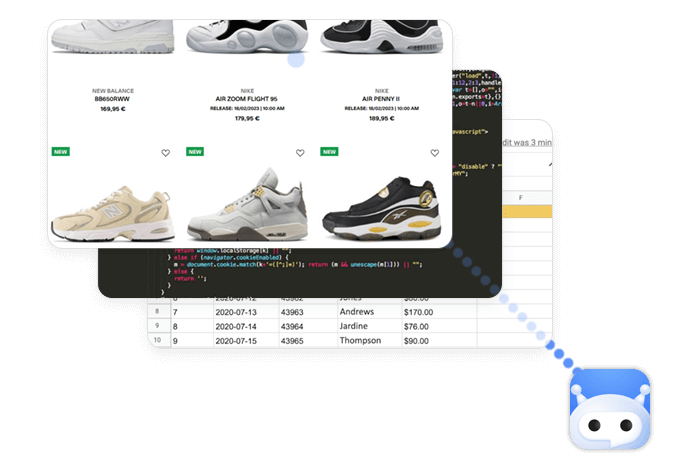
The sneaker industry is the most popular one for bots and proxies because of the high demand and low supply of limited edition sneakers. These sneakers are produced in small quantities by brands such as Nike, Adidas, and Yeezy, leading to intense competition among shoppers to send purchase requests. Sneaker bots can automate the process of buying sneakers online, bypassing security measures and placing orders faster than human users.
Sneaker proxies can hide the bot's real IP address and assign a different one, simulating the behavior of multiple users and avoiding detection and bans. By using bots and proxies, sneaker enthusiasts and resellers can increase their chances of getting the latest releases and making profits. The sneaker bot industry has become a big business, with some sneaker bots selling for thousands of dollars and some reseller companies making millions of dollars from flipping sneakers. The industry has also created an ecosystem of related services and products, such as servers, cook groups, monitors, and captcha solvers.
How many proxies do you need for a bot?
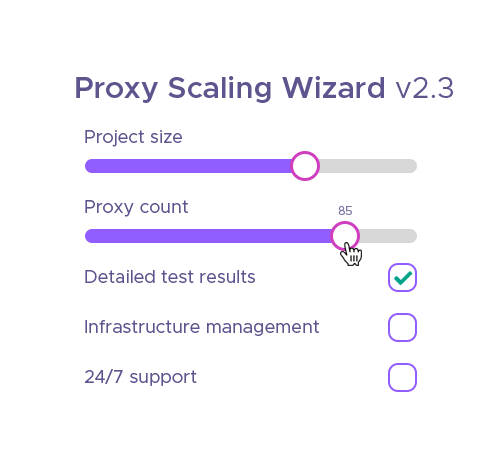
The number of proxies you may need for different types of bot depends on several factors, such as the target website, the bot's purpose, the bot's speed, and the proxy's quality. Here are some general guidelines:
- For web scraping bots, you may need at least one proxy per 10 requests per minute, or more if the target website has strict anti-scraping measures. You may also need to rotate your proxies frequently to avoid bans or captchas.
- For sneaker bots, you may need at least one proxy per task, or more if the sneaker release is very hyped or limited. You may also need to use proxies from different locations or subnets to match the website's region or avoid detection.
- For social media bots, you may need at least one proxy per account, or more if you want to create or manage multiple accounts on the same platform. You may also need to use residential proxies or static proxies to appear as real users and avoid blocks or verification.
- For chatbots and virtual assistants, you may not need many proxies, as these bots are not likely to send many requests or face bans. However, you may still want to use proxies to protect your privacy, access geo-restricted content, or improve your performance.
- For trading bots, you may need at least one proxy per exchange, or more if you want to trade on multiple exchanges or use different strategies. You may also need to use fast and reliable proxies to ensure low latency and high accuracy.
- Malicious bots need a large number of proxies, as these bots are likely to send many requests simultaneously and face bans or attacks. To avoid this, they typically use rotating or SOCKS proxies, but reputable providers terminate their accounts when they detect malicious activity.

Selecting the Best Proxies for Your Bots
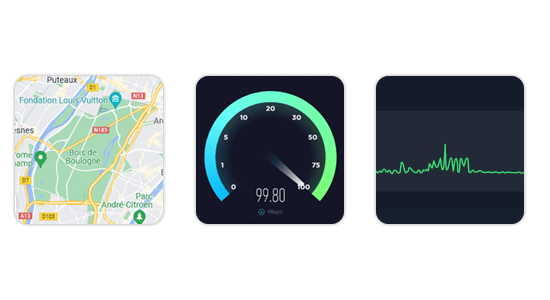
Choosing right proxies for your bots depends on your specific use cases and requirements. Here are some general criteria that you can consider:
- Speed: If you need fast and reliable proxies, you may want to use datacenter proxies or ISP proxies, as they have lower latency and higher bandwidth than residential proxies. However, if you need proxies that are hard to detect and block, you may want to use residential proxies, as they are more authentic and diverse than datacenter proxies.
- IP rotation: If you need proxies that can change their IP address for every connection or request, you may want to use rotating proxies, as they are dynamic, diverse, and hard to trace. However, if you need proxies that can maintain a consistent online identity, you may want to use static proxies, as they are stable, secure, and easy to manage.
- IP type: If you need proxies for bots that can handle any type of traffic, not just HTTP, you may want to use SOCKS proxies, as they are more versatile, secure, and fast than HTTP proxies. However, if you need proxies that are compatible with most websites, you may want to use HTTP proxies, as they are easy to use, widely available, and relatively cheap.
Configuring Proxies in Your Bot
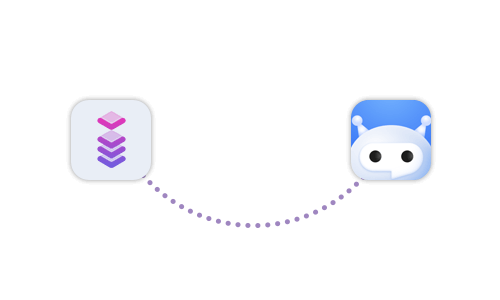
For proper setup, integration, and testing of proxies when setting up bots, you may want to follow these steps:
- Choose the right proxy type for your bot's purpose, target website, and budget. You can use the criteria we explained earlier, such as speed, ability to rotate IPs, and IP type, to compare different proxy types and providers.
- Generate or import your proxies from your proxy provider's dashboard or API. Make sure you have enough proxies for your bot's tasks and requests.
- Test your proxies before using them with your bot. You can use various tools and methods to check your proxies' quality and compatibility, such as IP checkers, databases, proxy testers, or scripts.
- Configure your proxy settings on your bot's interface or config file. You may need to enter your proxy server's address, port, username, and password, or use a proxy list or a proxy endpoint. You may also need to adjust some proxy options, such as proxy rotation, proxy chain, or proxy authentication.
- Run your proxies for bots and monitor the results. You can use your bot's dashboard or logs to see if your proxies are working properly and if your bot is achieving its goals. You can also use some tools or services to track your proxy performance, such as AYCD, Scout, or VanishedIO.
- Optimize your proxy settings based on the feedback and results. You may need to change your proxy type, provider, number, or rotation frequency to improve your proxy performance and avoid bans or errors. You may also need to test and compare different proxy settings to find the best balance between cost and performance.
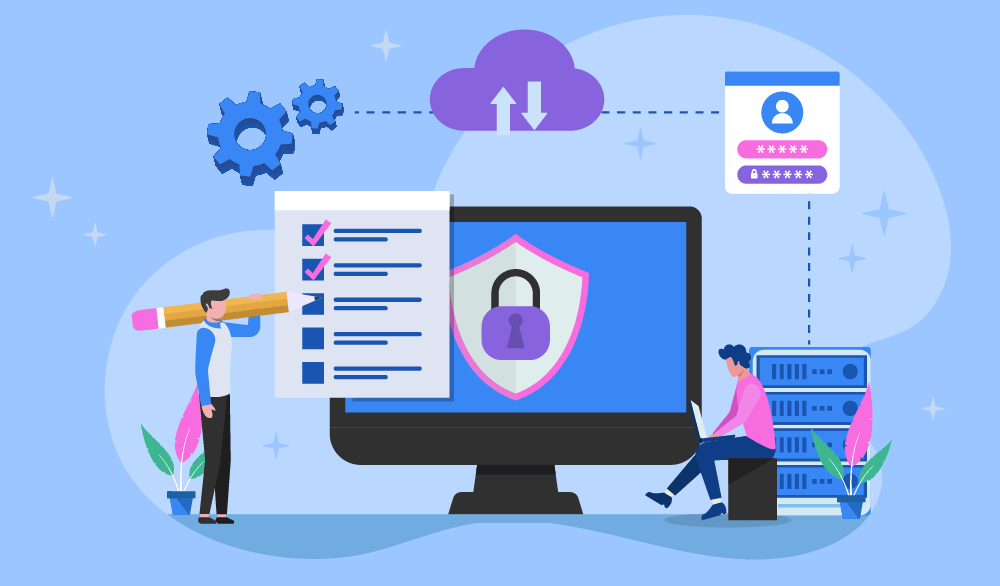
Security Considerations When Using Proxies
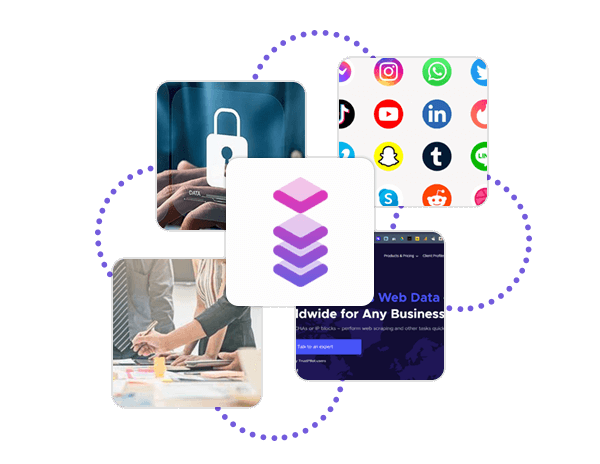
To use proxies safely, you may want to follow these security best practices:
- Choose reliable providers. You can check their reputation, reliability, reviews, and policies before using their services. You can also use some tools or websites to compare different proxy providers.
- Configure your encryption, rate limits, protocols, proxy access, and authentication. You can use username and password, IP whitelisting, or API keys to control who can use your proxies. You can also use encryption protocols, such as HTTPS or SOCKS5, to protect your data from interception or modification.
- Use rotation cycles frequently. You can use rotating proxies or proxy rotation software to change your IP address for every connection or request. IP rotation can help you avoid detection, bans, or captchas from the target websites.
- Use different proxy types for different purposes. You can use residential proxies to scrape websites, cop sneakers, or perform social media management, as they are more authentic and hard to block. You can use datacenter proxies for web testing, online gaming, or online privacy, as they are faster, cheaper, and more scalable.
- Keep monitoring your proxy performance. You can use some tools or services to track your proxy speed, bandwidth, uptime, and compatibility, such as AYCD, Scout, or VanishedIO. You can also test and compare different proxy settings to find the best balance between cost and performance.
Expert Tips for Advanced Bot Proxy Usage
To use bot proxies more efficiently, you may want to follow these techniques:
- Emulate human patterns: You can make your bot proxies look more natural and realistic by adding human-like behavior characteristics, such as using random delays, headers, or user-agents. This can help you avoid detection and bans from the target websites.
- Use proxy pools: You can use a large and diverse pool of proxies to distribute your bot requests and avoid overloading or exhausting your proxies. This can also help you rotate your proxies more frequently and dynamically.
- Optimize proxy location: You can use proxies for bots that are located close to your target website's server or region. This can help you reduce latency and improve speed and performance. This can also help you access geo-restricted or localized content.
- Monitor and test your proxies: You can use some tools or services to track your proxy speed, bandwidth, uptime, and compatibility, such as AYCD, Scout, or VanishedIO. You can also test and compare different proxy settings to find the best balance between cost and performance.
How to get proxies for bots
Residential, datacenter, and mobile proxies can all help bots perform better – and Infatica offers all these proxy types. Here are our key features:
- 99,9% uptime and low response time: Utilize fast and reliable connections to any website or service you need. Our proxies have a 99,9% uptime guarantee, low response time, and unlimited concurrent sessions.
- Top speed and performance: Powered by high-speed servers and dedicated bandwidth, Infatica’s proxy servers allow you to access any web page or data source with top connection speed and performance, without any throttling or proxy-related issues.
- Privacy and security: Enjoy a high level of privacy and security. You can hide your IP address and location from prying eyes, and protect your data from hackers and malware. Our proxies use encryption and authentication protocols to ensure your safety.
Conclusion
In this article, we’ve answered the “What are proxies for bots?” question: You have learned the basics of proxies, such as what they are, why they are important, how to choose and use them, and what are the best practices and tips for safe and efficient proxy usage. You have also learned about the different types of bots and proxies, their advantages and disadvantages, and their use cases and requirements. By following the guidelines and techniques in this article, you can use proxies for bots more effectively and achieve your goals faster, easier, and more efficiently. We hope you enjoyed this article and found it useful!





